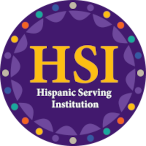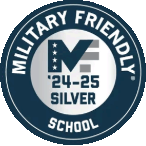Hello There!
Lorem ipsum dolor sit amet, consectetur
adipiscing elit,
Accreditation is the recognition from an accrediting agency that an institution maintains a certain level of educational standards. Accreditation simply means a quality check.
The Higher Learning Commission (HLC) is an independent corporation founded in 1895 as one of six regional institutional accreditors in the United States. HLC accredits degree-granting post-secondary educational institutions of higher education in the following nineteen-states: Arkansas, Arizona, Colorado, Iowa, Illinois, Indiana, Kansas, Michigan, Minnesota, Missouri, North Dakota, Nebraska, Ohio, Oklahoma, New Mexico, South Dakota, Wisconsin, West Virginia, and Wyoming.
Western New Mexico University is accredited by the Higher Learning Commission (hlcommission.org), an institutional accreditation agency recognized by the US Department of Education. As a “gatekeeper” agency recognized by the U.S. Department of Education, HLC assures that institutions comply with federal and state requirements, assess student learning, engage in institution-wide planning processes, are financially responsible, and evaluate and improve programming and services through analysis of data. WNMU proudly embraces the guiding values that underlie the five Criteria for Accreditation.
The Obligations of Membership describe HLC’s expectations regarding an institution’s participation in evaluations and other processes, communication with HLC and its constituents related to accreditation, and other aspects of the accreditation relationship.
More information on the accreditation process is available directly from the Higher Learning Commission or by mail at:
Higher Learning Commission
230 South LaSalle Street, Suite 7-500
Chicago, Illinois 60604
(800) 621-7440
Western New Mexico University (WNMU) is a unique institution which serves as both a community college and comprehensive university offering Associate, Baccalaureate, Graduate degrees, and undergraduate certificates in face-to-face and online modalities. WNMU is an Hispanic Serving Institution (HSI), about 49% of students identify as Hispanic, and approximately 50% of the population are non-traditional. The University’s service area covers 18,000 square miles of mostly rural locations. (From 2019 report)
WNMU was founded as a Normal School in 1893 and was recently named as New Mexico’s public Applied Liberal Arts & Sciences University. WNMU’s academic programs are rigorous and prepare students both for graduate programs and for careers. The University provides a variety of support services and programs many of which are focused on at-risk students. WNMU is transitioning from AQIP to Pathways.
In order to maintain our status, we must continue to meet HLC’s Criteria for Accreditation, which cover a variety of university operations and responsibilities:
The institution’s mission is clear and articulated publicly; it guides the institution’s operations.
Core Component 1A: – The institution’s mission is articulated publicly and operationalized throughout the institution.
Core Component 1B: – The institution’s mission demonstrates commitment to the public good.
Core Component 1C: – The institution provides opportunities for civic engagement in a diverse, multicultural society and globally connected world, as appropriate within its mission and for the constituencies it serves.
The institution acts with integrity; its conduct is ethical and responsible.
Core Component 2.A: – The institution establishes and follows policies and processes to ensure fair and ethical behavior on the part of its governing board, administration, faculty and staff.
Core Component 2.B: – The institution presents itself clearly and completely to its students and to the public.
Core Component 2.C: – The governing board of the institution is autonomous to make decisions in the best interest of the institution in compliance with board policies and to ensure the institution’s integrity.
Core Component 2.D: – The institution is committed to academic freedom and freedom of expression in the pursuit of truth in teaching and learning.
Core Component 2.E: – The institution’s policies and procedures call for responsible acquisition, discovery and application of knowledge by its faculty, staff and students.
The institution provides quality education, wherever and however its offerings are delivered.
Core Component 3A: – The rigor of the institution’s academic offerings is appropriate to higher education.
Core Component 3B: – The institution offers programs that engage students in collecting, analyzing and communicating information; in mastering modes of intellectual inquiry or creative work; and in developing skills adaptable to changing environments.
Core Component 3C: – The institution has the faculty and staff needed for effective, high-quality programs and student services.
Core Component 3D: – The institution provides support for student learning and resources for effective teaching.
The institution demonstrates responsibility for the quality of its educational programs, learning environments, and support services, and it evaluates their effectiveness for student learning through processes designed to promote continuous improvement.
Core Component 4A: – The institution ensures the quality of its educational offerings.
Core Component 4B: – The institution engages in ongoing assessment of student learning as part of its commitment to the educational outcomes of its students.
Core Component 4C: – The institution pursues educational improvement through goals and strategies that improve retention, persistence and completion rates in its degree and certificate programs.
The institution’s resources, structures, and processes are sufficient to fulfill its mission, improve the quality of its educational offerings, and respond to future challenges and opportunities.
Core Component 5A: – Through its administrative structures and collaborative processes, the institution’s leadership demonstrates that it is effective and enables the institution to fulfill its mission.
Core Component 5B: – The institution’s resource base supports its educational offerings and its plans for maintaining and strengthening their quality in the future.
Core Component 5C: – The institution engages in systematic and integrated planning and improvement.

